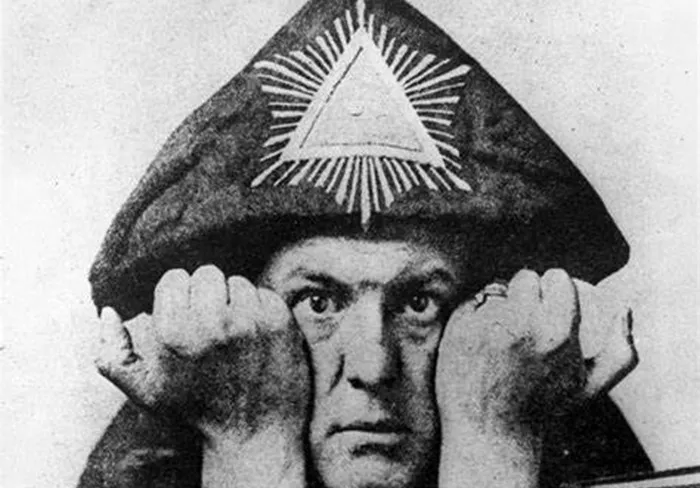In the world of 19th century British poets, few figures are as controversial and complex as Aleister Crowley. Born in 1875, Crowley is often remembered more for his occult practices than his contributions to British poetry. However, his literary works reveal a unique and often overlooked poetic talent. His writing reflects not only his personal philosophy but also the broader literary trends of his time. As a British poet, Crowley stands at the intersection of Victorian literary traditions and the emerging modernist movement.
The Early Life of Aleister Crowley
Aleister Crowley was born into a wealthy and strictly religious family in Royal Leamington Spa, England. His upbringing in the Plymouth Brethren, a fundamentalist Christian sect, had a profound impact on his later works. The strict moral codes and religious dogma of his youth fueled his rebellion against conventional values. This rebellion became a recurring theme in his poetry.
During his education at Trinity College, Cambridge, Crowley began to explore a wide range of subjects, including literature, philosophy, and mysticism. His early exposure to classical British poetry, combined with his interest in esoteric traditions, laid the foundation for his unique poetic style.
Aleister Crowley’s Contribution to British Poetry
Aleister Crowley’s poetry is often described as a fusion of mystical symbolism and personal introspection. Unlike many 19th century British poets who adhered to traditional forms and themes, Crowley sought to break free from these conventions. His poems frequently explore themes of spiritual liberation, sexual freedom, and the quest for self-knowledge.
One of his notable works, The Sword of Song (1904), exemplifies his innovative approach. In this collection, Crowley blends satire, philosophical reflection, and lyrical beauty. His use of complex metaphors and allusions to occult practices distinguishes his poetry from that of his contemporaries.
Though not widely recognized in mainstream literary circles, Crowley’s work has had a lasting impact on the development of modern British poetry. His experimental use of language and form anticipated many of the innovations later embraced by modernist poets.
Themes in Crowley’s Poetry
Several recurring themes define Aleister Crowley’s poetry. These include:
Mysticism and the Occult
Crowley’s deep involvement in mystical and occult practices is evident in his poetry. He often used symbols from various esoteric traditions, including Hermeticism, Kabbalah, and Eastern philosophies. His poems serve as both personal spiritual explorations and instructional texts for readers interested in the occult.
Rebellion Against Conventional Morality
Having rejected the strict religious upbringing of his youth, Crowley’s poetry frequently challenges traditional moral values. He advocated for personal freedom and the breaking of societal taboos, especially regarding sexuality and religious belief.
The Search for Identity
Crowley’s poetry reflects his lifelong quest for self-understanding. His works explore the complexities of human nature and the struggle to achieve spiritual enlightenment.
Comparison with Other 19th Century British Poets
When comparing Aleister Crowley to other 19th century British poets, several differences and similarities emerge.
Contrast with Victorian Moralism
Many British poets of the 19th century, such as Alfred, Lord Tennyson and Matthew Arnold, grappled with themes of faith, doubt, and the role of religion in modern life. However, while poets like Tennyson approached these themes with a sense of melancholy and moral restraint, Crowley’s work is marked by open defiance and celebration of individualism.
Similarities with the Decadent Movement
Crowley shares common ground with poets of the Decadent movement, such as Algernon Charles Swinburne and Oscar Wilde. Like these poets, Crowley embraced themes of aestheticism, sensuality, and the rejection of bourgeois values. However, Crowley’s focus on mysticism and the occult adds a distinct dimension to his poetry.
Influence of Romanticism
Despite his rebellious nature, Crowley was influenced by the Romantic poets, particularly William Blake. Blake’s visionary poetry and mystical themes resonate in Crowley’s work. Both poets sought to transcend ordinary reality through visionary experiences.
The Legacy of Aleister Crowley in British Poetry
Aleister Crowley’s contribution to British poetry is complex and multifaceted. Though often marginalized during his lifetime, his influence has grown over the years. Modern scholars recognize his role in bridging 19th century literary traditions with the experimental approaches of the 20th century.
Crowley’s fearless exploration of taboo subjects and his innovative use of language paved the way for later poets who sought to challenge literary and social conventions. His work continues to inspire poets, musicians, and artists interested in themes of mysticism and personal liberation.
Crowley’s Place Among 19th Century British Poets
While Aleister Crowley may not fit neatly into the traditional canon of 19th century British poets, his work represents an important countercurrent within the literary landscape of the time. His poetry offers a radical alternative to the dominant Victorian values, reflecting a broader cultural shift toward modernism.
Other 19th century British poets, such as Dante Gabriel Rossetti and Christina Rossetti, also explored themes of spirituality and desire, but Crowley’s approach was far more confrontational and esoteric. His willingness to embrace controversial ideas and his commitment to artistic freedom distinguish him as a unique voice among his peers.
Conclusion
Aleister Crowley remains one of the most enigmatic figures in British poetry. As a 19th century British poet, his work challenges readers to reconsider the boundaries of poetic expression. His fusion of mystical symbolism, personal rebellion, and innovative form places him at the crossroads of Victorian tradition and modernist experimentation.
Though often overshadowed by his reputation as an occultist, Crowley’s literary contributions deserve serious recognition. His poetry reflects not only his personal journey but also the broader tensions within 19th century British society.
In the larger context of 19th century British poets, Aleister Crowley’s work serves as a powerful reminder of the diverse and dynamic nature of British poetry. His legacy continues to resonate with those who seek to explore the deeper mysteries of the human experience through the poetic form.

